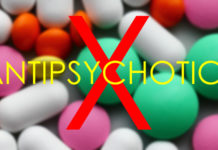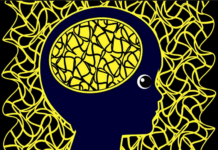How Western Psychiatry Harms Alternative Understandings of Mental Health
An anthropological look at the Global Mental Health (GMH) movement suggests several ethical problems and contradictions in its mission.
Risk of Depression Spikes When Kids Take Ritalin
Risk of depression increased when children were taking methylphenidate for ADHD, but once they stopped taking the drug, depression risk dropped to normal levels.
Antidepressant Use More Than Doubles Risk of Suicide Attempts
Throughout the past two decades, studies have warned of increased suicide rates in those taking antidepressants, especially in children and adolescents. Researchers also documented...
Review Documents Severe Withdrawal Effects of Psychiatric Drugs
Researchers find that most psychiatric drugs cause severe withdrawal despite attempt s to gradually decrease the dosage.
Researchers: “Antidepressants Should Not be Used for Adults with Major Depressive Disorder”
A new review, published in BMJ Evidence-Based Medicine, concludes that antidepressants should not be used as the risks outweigh evidence for benefits.
Researchers Set the Record Straight on Controversial Zoloft Study
An issue of Lancet Psychiatry is devoted to clarifying the lack of efficacy for Zoloft (sertraline).
Substantial Spin Found in Leading Psychology and Psychiatry Journals
: A new review finds evidence of spin and the misrepresentation of clinical trials with non-significant results.
Fighting for the Meaning of Madness: An Interview with Dr. John Read
Akansha Vaswani interviews Dr. John Read about the influences on his work and his research on madness, psychosis, and the mental health industry.
Pets More Effective for Grief Support than Humans, Study Finds
A new study explores effective forms of grief support, finding that animals are more effective than humans in providing support.
New Study Casts Doubt on Efficacy of Ketamine for Depression
A new study, published this month in the Journal of Affective Disorders, investigated the effectiveness of weekly intravenous ketamine injections as a treatment for...
The Failings of “Mental Health”: How a Seemingly Benign Concept Might be Dangerous
MIA’s Ayurdhi Dhar interviews Bruce Cohen about dismissive psychiatrists, pervasive psychiatry, and the field's ties to neoliberal capitalism.
Antipsychotic Medications Are Causing Obsessive Compulsive Disorders
Common second-generation antipsychotic medications are causing symptoms of obsessive-compulsive disorder to emerge in many people who previously only had schizophrenia symptoms, according to a...
Newborn Babies Go Through Antidepressant Withdrawal
A new study finds that newborn babies experience antidepressant withdrawal after birth if their mothers take SSRIs when pregnant.
Addressing the Roots of Racial Trauma: An Interview with Psychologist Lillian Comas-Díaz
MIA’s Hannah Emerson interviews Comas-Díaz on the need for culturally competent care in a medicalized and individualistic society.
Largest Survey of Antipsychotic Experiences Reveals Negative Results
A new survey exploring antipsychotic user experience finds that more than half of the participants report only negative experiences.
Adults Treated for ADHD Report Low Quality of Life
Adults receiving ADHD medications and therapy frequently experience adverse events that interfere with employment and daily life.
Psychotherapy Less Effective for People in Poverty and Those on Antidepressants
A new study finds poorer depression and anxiety outcomes in psychotherapy for people in economically deprived neighborhoods and those on antidepressants.
Growing Research Connects Nutrition and Mental Health
A new article reviews studies in the field of nutritional psychiatry and how nutrition can prevent and treat mental health issues.
Patient Reports Reveal SSRI Antidepressants Often Lead to Emotional Blunting
According to patient reports, SSRI antidepressants most frequently lead to the subjective experience of emotional blunting.
Researchers: Antidepressant Withdrawal, Not “Discontinuation Syndrome”
Researchers suggest that the pharmaceutical industry had a vested interest in using the term “discontinuation” in order to hide the severity of physical dependence and withdrawal reactions many people experience from antidepressants.
Review Explores First-Person Experiences of People Taking Antipsychotics
A new systematic review finds that patients report reduced symptoms but also loss of self and agency while taking antipsychotics.
Psychiatric Journals’ Pro-Pharma Publication Bias Hides Suicide Risk of Antidepressants
Selective publication bias in top psychiatry journals was not explained by the quality of the studies, but by financial ties to pharma.
How to Distinguish Antidepressant Withdrawal from Relapse
Mark Horowitz and David Taylor provide advice on how to tell the difference between antidepressant withdrawal and depression relapse.
Psychiatrists Argue For More Attention to Iatrogenic Harms
Psychiatrists argue that current practice fails to account for the interaction of biological, psychosocial and iatrogenic factors.
Very Slow Taper Best for Antipsychotic Discontinuation
An article in JAMA Psychiatry advises very slow tapering for best results when discontinuing antipsychotic drugs.

































